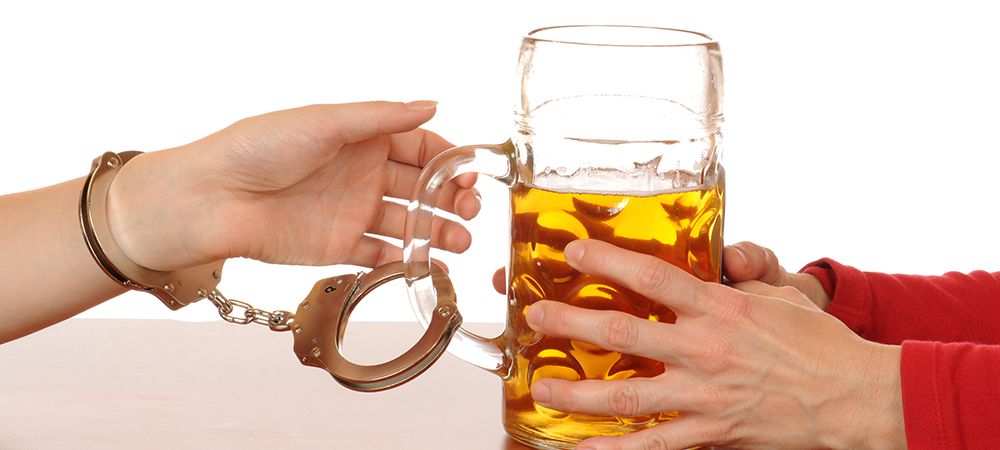
10 Risks Of Alcohol Misuse
It is estimated that roughly 80% of Canada’s population consumes alcohol at least once during any given one-year period. While this number may seem high, the vast majority of alcohol use in Canada is within reasonable limits. About 15% of those who drink alcohol consume more than the quantities laid out in Canada’s low-risk alcohol drinking guidelines.
Alcohol misuse is still a concern though. It costs the economy over $14 billion a year in healthcare, lost productivity, legal costs, and more. It destroys relationships and creates or exacerbates mental illnesses. Worst of all, it costs lives that can never be brought back.
In this article, we will talk about what constitutes alcohol misuse, and what the risks are.
What Counts As Alcohol Misuse?
Misuse of alcohol can take several forms, and although the general impacts are well documented, there is variability from person to person. How alcohol affects you in the short- and long-term depends on factors like your age, weight, state of physical and mental health, what medications you are taking, whether you are going through stressful life events, and more. If you do consume alcohol regularly, you should monitor your consumption and reduce it if needed, to account for any of these factors.
Exceeding Alcohol Use Guidelines
Canada’s low-risk alcohol drinking guidelines recommend that adults assigned female at birth should not exceed two drinks in one day, with a maximum of 10 drinks weekly. Adults assigned male at birth should not exceed three drinks in one day, with a maximum of 15 drinks per week. Anyone up to the age of 24 should limit themselves to two drinks in one day, no more than twice a week.
Exceeding these guidelines could result in harm to yourself or others. It is important to note that these numbers are averages only, and could vary according to several factors. If you are on any medications or you have been diagnosed with a physical or mental illness, talk to your doctor about safe alcohol consumption guidelines.
Underage Drinking
In Ontario, the minimum legal drinking age is 19. It is illegal for merchants to sell or serve alcohol to people below that age. Nor can adults purchase alcohol and pass it to someone who has not attained legal drinking age.
There is a solid body of evidence showing that alcohol can have detrimental effects on developing brains. Drinking at young ages can lead to serious long-term effects, and it increases the risk of addiction to alcohol or other substances later in life.
Drinking And Driving
The legal blood alcohol content (BAC) level for drivers is 0.08 in Ontario (80 milligrams of alcohol per 100 millilitres of blood). This equates to around four standard units of alcohol. However, many people experience signs of impairment before reaching that level. The best course of action is to avoid driving after consuming any alcohol. If you have been drinking, hand your keys to someone who hasn’t, or find an alternative way of getting home.
Drinking Alcohol While Pregnant Or Breast/Chestfeeding
Some people believe that having the occasional glass of wine during pregnancy is harmless, but this has not been established. Until a safe amount of alcohol consumption is established for pregnant people, it is best to avoid alcohol entirely if you are pregnant or trying to become pregnant. Similarly, alcohol has been shown to pass into breast milk. If you do have a drink, wait for two hours before breast/chestfeeding your baby.
Using Alcohol In Conjunction With Medication Or Other Substances
Alcohol alone can have some serious side effects, and these can be exacerbated when alcohol is used with other substances. It is essential that you talk to your doctor about alcohol consumption guidelines if you are using any medication, particularly benzodiazepines, barbiturates or opioids.
Using various street drugs with alcohol can be extremely dangerous, since many drugs are combined, or “cut” with substances unknown to the user.
Using Alcohol As An Escape
Most people use alcohol as a way to relax after a long day at work, to celebrate a special occasion, or to socialize with friends. If you are drinking as a way of escaping from past or present traumas in your life, this could be a sign that you do not have a healthy relationship with alcohol.
What Alcohol Misuse Risks Should I Be Aware Of?
Misuse of alcohol, either on a single occasion or as a repeated pattern, can have far-reaching effects on all areas of your life. Many people only think of the long-term consequences of alcohol addiction, but remember that it only takes one incident of impaired driving to send your life spinning out of control.
Here are ten of the biggest impacts of alcohol misuse.
Risk #1 – There Are Immediate And Long-Term Health Risks
Alcohol intoxication happens when you drink more than what your body is capable of metabolizing. The effects include impaired motor skills, poor judgment, mood swings, high blood pressure, nausea and vomiting, and loss of consciousness. In most people who are generally healthy, these effects will wear off within a few hours, although you may be left with a nasty headache and a feeling of dehydration the next day.
Drinking large quantities of alcohol on a regular basis over a long period of time can result in serious health effects, including liver disease, various cancers, cardiac problems, digestive complaints, reproductive health problems, and cognitive decline.
Risk #2 – You Are At High Risk Of Accidental Injury Or Death
When you are under the influence of alcohol, your sense of judgement starts to fail, and your inhibitions are lowered. This can result in you doing potentially dangerous things while being impervious to the risks. Examples include driving while impaired, trying to perform dangerous stunts, and engaging in high-risk sexual behaviour. These actions can have life-long effects, and they can even result in your death – or the death of somebody else.
Risk #3 – Alcohol Misuse Can Lead To Aggression And Violence
One of the more frightening side effects of alcohol is mood swings. One moment you may be feeling happy and relaxed, the next moment you may feel the need to lash out at someone for no reason that they can discern. Many incidents of domestic violence are triggered by overuse of alcohol. Your victims could end up seriously hurt or worse.
Risk #4 – You Could Alienate Your Family And Friends
Whether you are dependent on alcohol or not, the way you behave when you’ve been drinking can have a potentially traumatizing effect on the people around you. If you tend to become violent, your family might fear you. If you have an addiction that is making you deceptive, you may lose the trust of those closest to you. If there are children in the home and you are deemed a safety risk to them, they could be removed from your custody. Sometimes damaged relationships can be mended during rehab with a lot of patience and hard work, but there are times when those broken relationships are lost forever.
Risk #5 – You Could Lose Your Job
If you have developed an alcohol addiction, you may have reached the point where your body needs alcohol in order to function. When this happens, your life becomes centred around making sure you can obtain and consume alcohol. This often leads to increased incidents of lateness and absenteeism, erratic work performance, and workplace behaviour that results in coworkers feeling uncomfortable or afraid. If you approach your employer for help, they may give you a leave of absence so you can attend rehab. Many times, though, you could simply find yourself without a job.
Risk #6 – Your Mental Health Will Suffer
In many cases, mental illness is a trigger for alcohol use and alcohol addiction, but the opposite can also happen. Many people who become dependent on alcohol experience an increase in anxiety and depression. These effects can be compounded by the social isolation that many people with alcohol addictions experience.
Risk #7 – You Could Find Yourself In Legal Trouble
Overuse of alcohol can lead to you doing things that are reckless and illegal. The most obvious example is impaired driving: depending on whether you cause a collision, you could face charges over and above the impaired driving charges. You can also face legal trouble if you assault somebody, if you trespass on private property, or if you engage in other criminal activity, like breaking and entering.
Risk #8 – Attempts To Quit Can Be Dangerous
If you go down the path of alcohol addiction, you could end up in what feels like a no-win situation because it is so difficult to quit. One of the reasons for this is that the body can have intense reactions to alcohol withdrawal, and this could be dangerous if you are not under the supervision of a doctor. A severe form of alcohol withdrawal, called delirium tremens, is characterized by seizures, and can be fatal. If you are intending to quit using alcohol, we strongly recommend that you check into a detox facility that will keep you safe during the withdrawal process.
Risk #9 – You Could Become Addicted To Alcohol
Not everyone uses alcohol for enjoyment. Some people seek out alcohol as an escape. It can create feelings of relaxation and confidence. It can make people feel less anxious. The problem is that the more you use alcohol, the more you have to use. The amounts you consume have to increase in order to give you the same effects. Over time, your body becomes dependent on alcohol, and your life becomes consumed with drinking and planning to drink.
Risk #10 – Fetal Alcohol Syndrome
If you drink alcohol throughout your pregnancy, you face risks like preterm delivery and complications during childbirth. Your baby could be born with Fetal Alcohol Syndrome. This has potentially lifelong effects for the child, such as inability to gain weight, cognitive delays, behavioural challenges, learning difficulties and social challenges.
Getting Help For Alcohol Abuse And Addiction
If you are concerned about alcohol misuse, either in yourself or in a loved one, call 1000 Islands Rehab Centre for help. With our compassionate staff and our beautiful location, we can provide customized alcohol addiction treatment in an environment that is conducive to healing. As a top addiction rehab in Toronto, we look forward to being part of your journey to recovery.




